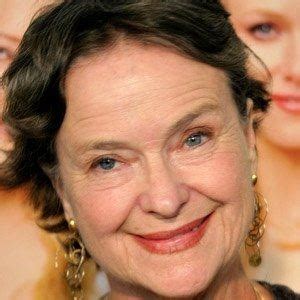A Quote by Emma Healey
When I was writing my first novel, 'Elizabeth is Missing,' I was writing the only novel I had ever written and writing about the only protagonist I'd ever written about. Because of this, I didn't think of her as a construct. Maud was real.
Related Quotes
If I'm writing a novel, I'll probably get up in the morning, do email, perhaps blog, deal with emergencies, and then be off novel-writing around 1.00pm and stop around 6.00pm. And I'll be writing in longhand, a safe distance from my computer. If I'm not writing a novel, there is no schedule, and scripts and introductions and whatnot can find themselves being written at any time and on anything.
It was only after two years' work that it occurred to me that I was a writer. I had no particular expectation that the novel would ever be published, because it was sort of a mess. It was only when I found myself writing things I didn't realise I knew that I said, 'I'm a writer now.' The novel had become an incentive to deeper thinking. That's really what writing is—an intense form of thought.
In the case of my second film The Fish Child (El Niño Pez), I had written the novel about 5 years before I made into a film. In the case of The German Doctor I had published the novel a year before I started writing the script, I even had another project to shoot. But I had this idea of the powerful cinematic language from the novel that I couldn't let go of.
I was a lot dumber when I was writing the novel. I felt like worse of a writer because I wrote many of the short stories in one sitting or over maybe three days, and they didn't change that much. There weren't many, many drafts. That made me feel semi-brilliant and part of a magical process. Writing the novel wasn't like that. I would come home every day from my office and say, "Well, I still really like the story, I just wish it was better written." At that point, I didn't realize I was writing a first draft. And the first draft was the hardest part.
But novels are never about what they are about; that is, there is always deeper, or more general, significance. The author may not be aware of this till she is pretty far along with it. A novel's whole pattern is rarely apparent at the outset of writing, or even at the end; that is when the writer finds out what a novel is about, and the job becomes one of understanding and deepening or sharpening what is already written. That is finding the theme.
Writing has to do with truth-telling. When you're writing, let's say, an essay for a magazine, you try to tell the truth at every moment. You do your best to quote people accurately and get everything right. Writing a novel is a break from that: freedom. When you're writing a novel, you are in charge; you can beef things up.
Although my father's mother, Nancy, has dementia, and her experiences gave me ideas for some of the scenes in the book, it was my mother's mother, Vera, who most influenced the character of Maud. Vera died in 2008, before I'd gotten very far into writing 'Elizabeth Is Missing,' but her voice is very like Maud's.




































